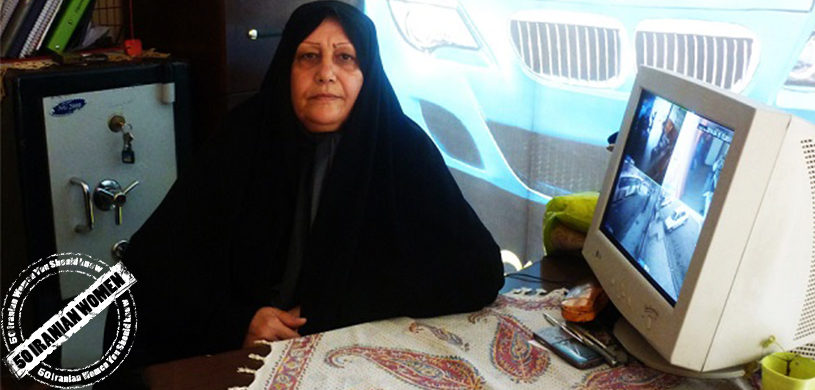Global and Iranian history are both closely intertwined with the lives and destinies of prominent figures. Every one of them has laid a brick on history’s wall, sometimes paying the price with their lives, men and women alike. Women have been especially influential in the past 200 years, writing much of contemporary Iranian history.
In Iran, women have increased public awareness about gender discrimination, raised the profile of and improved women’s rights, fought for literacy among women, and promoted the social status of women by counteracting religious pressures, participating in scientific projects, being involved in politics, influencing music, cinema... And so the list goes on.
This series aims to celebrate these renowned and respected Iranian women. They are women who represent the millions of women that influence their families and societies on a daily basis. Not all of the people profiled in the series are endorsed by IranWire, but their influence and impact cannot be overlooked. The articles are biographical stories that consider the lives of influential women in Iran.
IranWire readers are invited to send in suggestions for how we might expand the series. Contact IranWire via email ([email protected]), on Facebook, or by tweeting us.
* * *
Jamileh Sadeghi was born into a large family of eight brothers and sisters in 1958 in Karaj, not far from Tehran. She is now the CEO of Iran’s first-ever all female taxi service; it is both owned and operated by an all-women workforce.
Early on, her father, who was a farmer, recognized that she was bright, and put her in charge of the farm’s paperwork, making her responsible for paying his 40 or so workers and for overseeing the farm’s delivery of daily produce to the local market when she was just 13 years old.
At 18, Sadeghi married and before long became a mother, though this did not hinder her from completing a university degree in management. During the 1980s, when Iran was at war with Iraq, she bought herself a sewing machine with money she had managed to save and began making clothes for Iranian soldiers.
In 1983, Sadeghi went to study at a religious seminary. During her second year, she gave birth to her first daughter. She would later have a second daughter and a son, who later died.
Sadeghi’s first job was as the librarian of the Fatemieh Seminary in Karaj. After that, she was the head of visual and dramatic arts at the Islamic Culture and Guidance Bureau in Karaj for eight years. Then she was transferred to the governor’s office and appointed advisor to the governor of Karaj, which she did for a decade. She was also appointed as secretary of the Karaj Women’s Affairs Commission, until she resigned from all government posts in 2000.
As the managing director of the Women’s’ Cultural Center in Karaj, she recalls hearing daily stories of how women were verbally assaulted in taxis, and this is how she came up with the idea for an all-female taxi service. By doing this, she could not only create jobs for women drivers but alleviate verbal assaults against them as well.
In 2001, Sadeghi secured a license to open the taxi company. Women in Karaj welcomed the move and she immediately received about 100 job applications. As the business was going so well, she expanded, and in 2003, she was granted another five permits for female bus drivers at the Karaj Bus Bureau.
“I knew from the start that I could utilize women’s abilities to the max,” Sadeghi says. “Although my husband promised to never stand in my way, he said he couldn’t give me any help, either morally or materially.”
Sadeghi explains that it was very difficult at the beginning without any financial support but that she was determined to prove women’s abilities, including her own. So she made an appointment at the bank to get a loan, which was successful. With the loan money, she rented out a venue and invited like-minded women to come and work for her.
“I now want to set up the first-ever auto repair shop with only female mechanics,” she says. “I’m also expanding transportation services for women traveling between cities and abroad.“
Sadeghi’s success has made news both inside and outside of Iran. Her successful business led her to be chosen as Model Job Creator of the Year in 2003, 2006 and 2007. Her life and career are also the subject of a book, A Woman as Great as the Sky.
Also in the series:
50 Iranian Women you Should Know: Jinous Nemat Mahmoudi
50 Iranian Women you Should Know: Simin Behbahani
50 Iranian Women you Should Know: Forough Farrokhzad
50 Iranian Women you Should Know: Parvin Etesami
50 Iranian Women you Should Know: Farokhru Parsa
To read more stories like this, sign up to our weekly email.
visit the accountability section
In this section of Iran Wire, you can contact the officials and launch your campaign for various problems


























comments